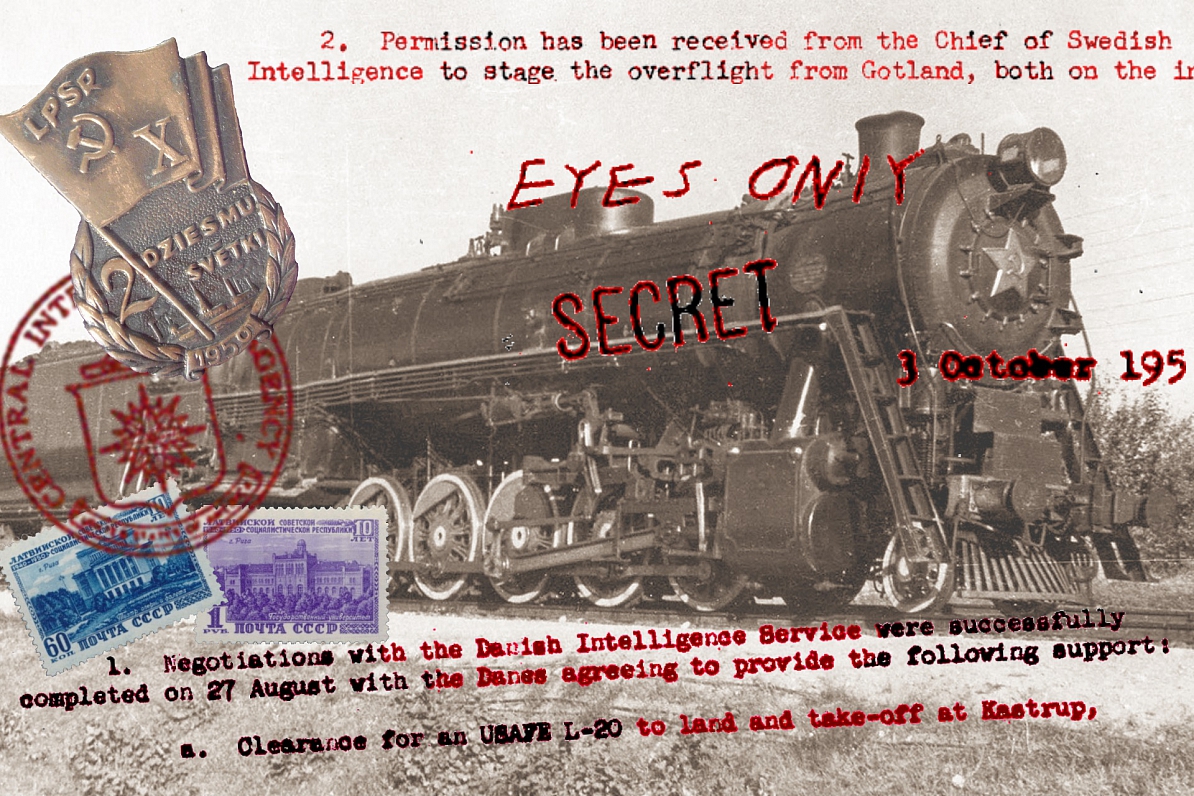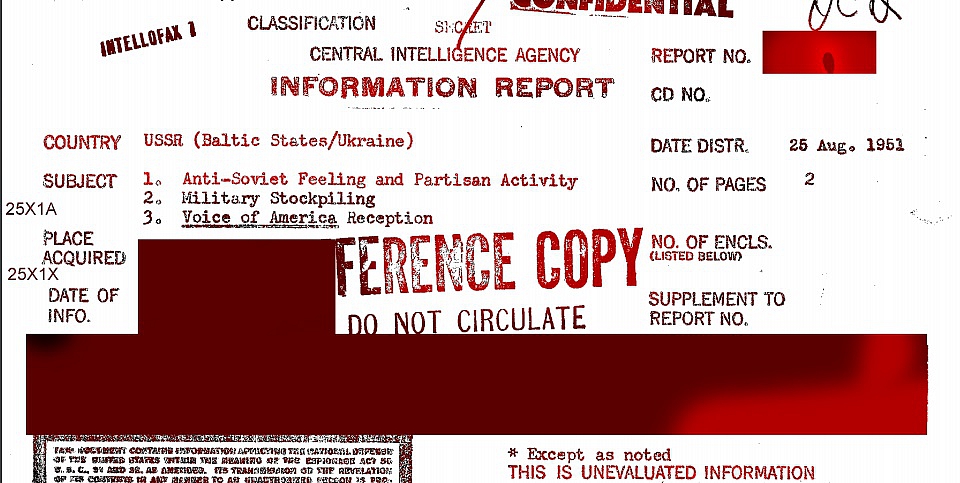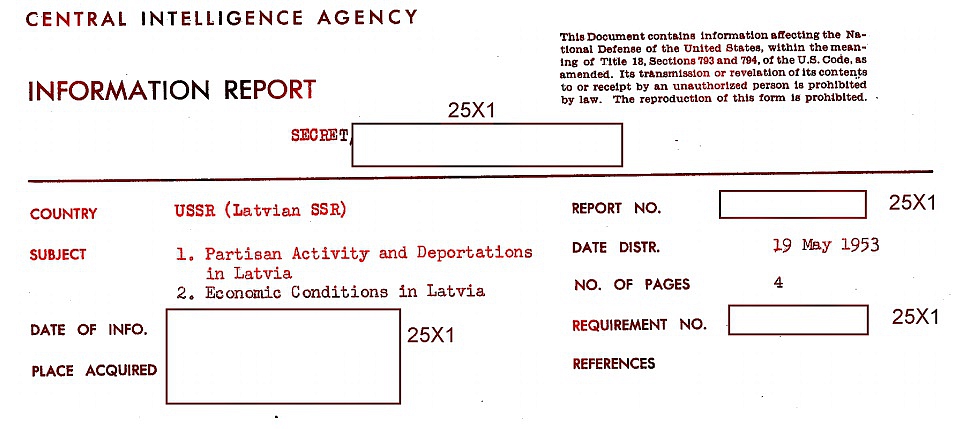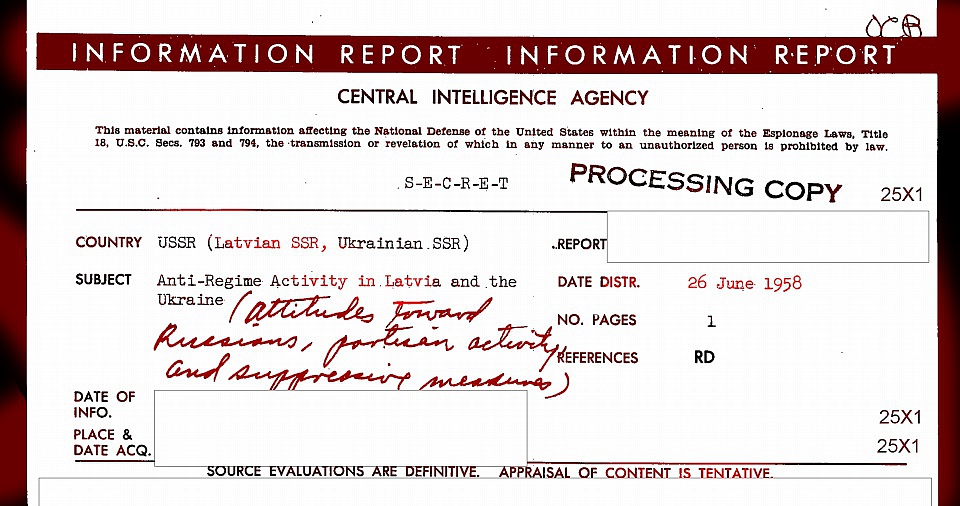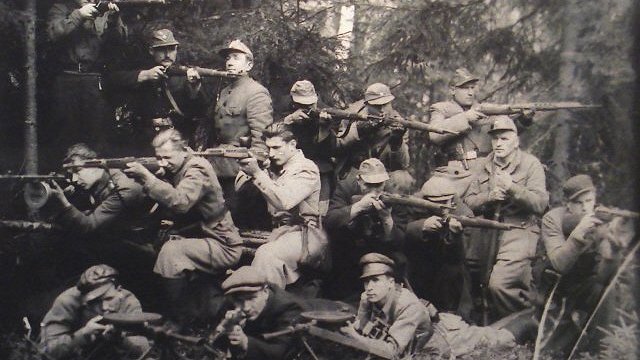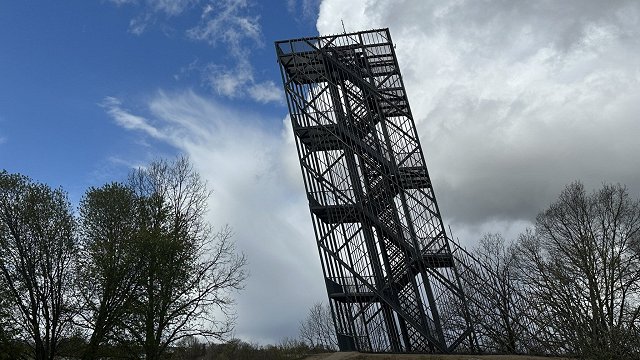The CIA documents that previously appeared on LSM include a description of the resistance movement and how it arose; a "letter from the forest" addressed to Latvian emigre organizations in the West; reports of how the West helped the resistance; and how the movement was caught between UK and US intelligence agencies.
The current string of CIA reports are dated 1951 to 1958.
1. Anti-Soviet Feeling and Partisan Activity
August 25, 1951
The document, marked as containing unevaluated information, describes the situation across the Baltics in the early 50s.
"The hatred of the Baltic population against the Soviets is intense; it is particularly noticeable in Estonia, where the people studiously ignore the Russians and never respond to them in Russian."
Curiously enough, the report suggests that in the event of war even local Russians may not stand up to defend the powers that be.
"The Balts pray for war as their salvation. It is problematical whether the Russians will rally to the defense of the regime if intelligent approaches are made to them by the West, particularly by the Americans."
In the document, which is of considerable historic interest, it is also suggested that should things turn to war, the West should promise to return confiscated land to the people to win support across the USSR.
2. Partisan Activity and Deportations in Latvia
May 19, 1953
This report on the other hand describes both public sentiments and several incidents presumably involving partisans in Latvia.
"Although the Latvian people were dissatisfied with the occupation of their country, with the Communist government and with the policy of Russification [the sources] do not believe that there was any organized and effective resistance movement in Latvia.
3. Anti-Regime Activity in Latvia and Ukraine (Attitudes Toward Russians, Partisan Activity and Suppressive Measures)
June 26, 1958
This document describes reports by an individual that presumably emigrated to the West in the latter half of the 1950s. It is evident that the source was a man of non-Latvian descent.
According to the source, evidently, the majority of Latvians would have partaken in open warfare against the Soviets should the West offer support.
"[The source said that] the vast majority of Latvians were anti-Soviet in sentiment ..."
"(1) Opposed to regime strongly, to the point where they would participate in either open or guerrilla sabotage operations if supported by the western powers: 50 percent.
(2) Opposed to regime but would not participate in actions against it of the type suggested under (1). Would, however, strongly support an anti-Communist government when once established in power: 20 percent.
(3) Neutral and/or indifferent to regime: 15 percent.
(4) Support regime mildly and/or belong to Communist party or party-controlled mass organizations, however, would not fight to defend it: 10 percent.
(5) Support regime strongly and would fight to defend it: 5 percent."
The report goes on to describe the pride Latvians took in their country and that they perceived they would have lead a better life were it not for the Soviet occupation.
